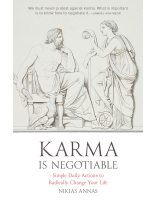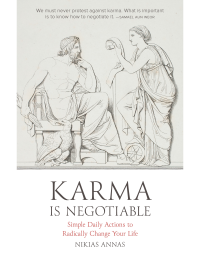Each of the ten examples of non-virtuous actions provided by the Buddha are motivated by selfishness, and perpetuated by a lack of cognizant knowledge. When we are infected by a desire, we do not want to know that our actions are harmful; we are only interested in satisfying the desire. Thus, we are willfully ignorant.
Yet if we pay attention to the effects of our actions, we can understand that each of these ten actions can be inverted, and converted into a powerful source of benefit for everyone. This is true of every harmful act and every desire: the energy it harnesses can be converted into benefit, if we know how. This is the scientific basis for the highest levels of spiritual instruction. Yet to succeed in that effort, the desire has to be completely transformed.
Consider the power of the ten harmful actions when they are converted through generosity and intelligence into virtuous action:
- Life-giving: Instead of killing (life-taking), we act to protect the lives of others in every way, especially spiritually and psychologically.
- Generosity: Instead of stealing from others, we give to others, preferring to provide for others rather than ourselves. Parents can do this for children; why not extend this to everyone? What if our leaders in business, politics, and religion were to adopt this attitude? How different the world would be!
- Sexual Purity: Instead of desire-based sexuality, we engage in spiritually-based sexuality, thus transforming our sexuality from something animal into something pure and Divine.
- Truthfulness: Instead of lying to ourselves and others, we speak, think, and feel the truth, always, without exception.
- Unifying Speech: Instead of acting to divide others, we foster unity and understanding, to strengthen relationships instead of weakening them.
- Affirming Speech: Instead of thinking and speaking offensively, we express only what is positive, uplifting, and enlightening to others.
- Wisdom Speech: Instead of senseless thought and speech, we say only what is true, useful, and important.
- Happiness for Others: Instead of coveting what others have, we are grateful for what the Divine has given us, and we are grateful for what the Divine has given to others.
- Cherishing: Instead of malice towards others, we cherish them and their well-being.
- Right Views: Instead of protecting our ignorance, we embrace a cognizant awareness of reality, combined with an intelligent compassion for others, thereby cutting through appearances in order to see the facts.
Each harmful action weakens the consciousness. Each virtuous action strengthens the consciousness. The full development of the human being is accomplished when the consciousness reaches full strength and is capable of acting virtuously, for the benefit of everyone, at all times. This can only be reached by removing the causes of harmful action. Those causes can only be removed when they are seen and understood.
There are enumerable psychological aggregates within us, which are encoded energies that impel towards harmful action. If we want to overcome suffering, it is our duty to discover them, to analyze them, and to stop acting on them, instead adopting beneficial behaviors, thereby transforming sources of harm into sources of benefit. This cannot be accomplished automatically, or by merely intending to do good. Success in this effort depends on cognizance: conscious knowledge of reality, based on personal experience.
Make it Practical
After your evening review of your daily life, contemplate each of these ten actions. Are they present anywhere in your observations?
Want to go deeper? Focus on one per day, or one per week. Do not read about them; instead, observe them in your daily life, and in yourself, and each night reflect on your observations.







